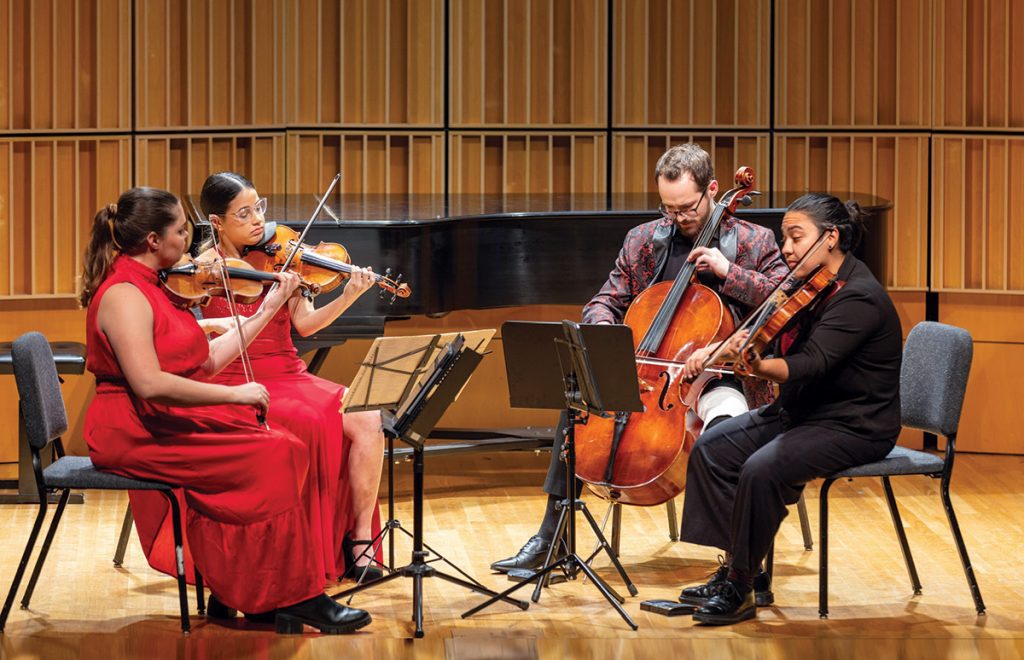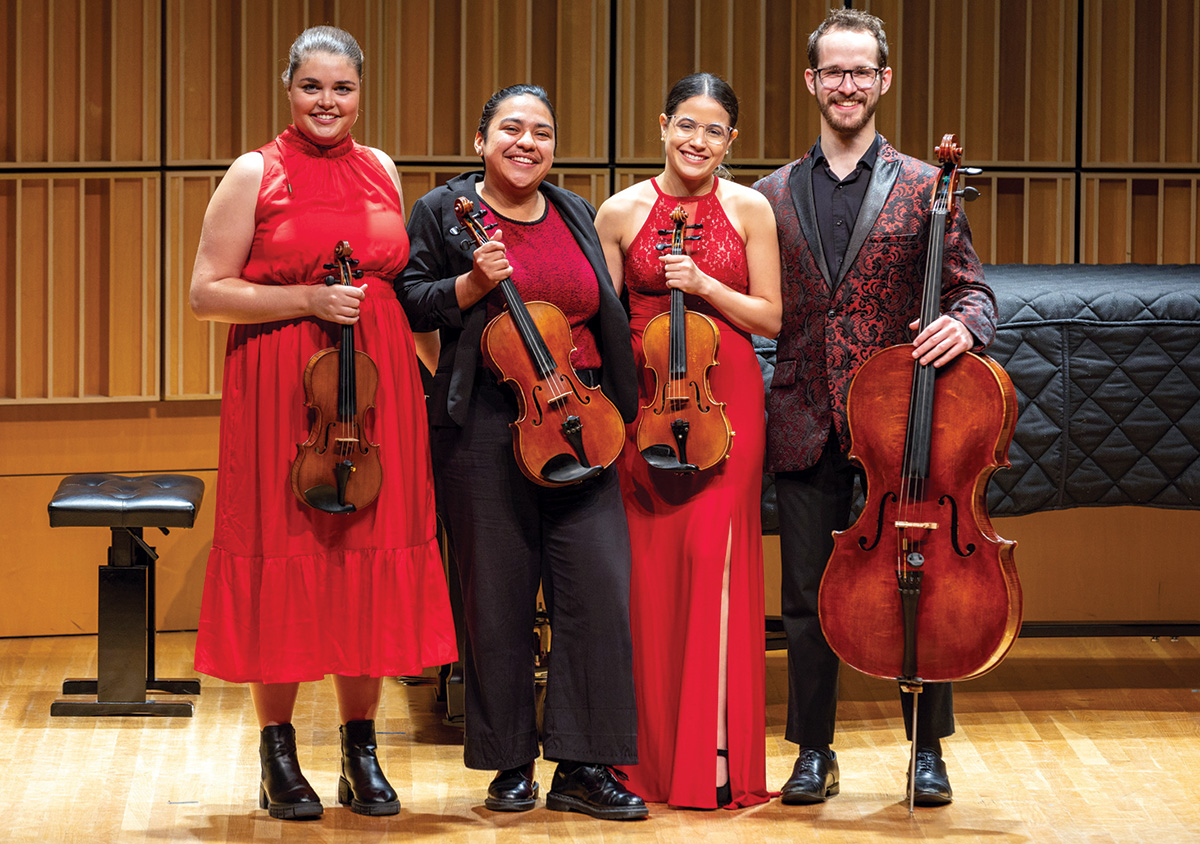Auroras, as any astronomy buff knows, are nature’s pyrotechnics—the astonishing light displays, brought on by enhanced solar activity, that blanket our sky in Arctic and Antarctic climes. So it’s fitting that the Aurora String Quartet, founded at Lynn University, would be chosen to tour with one of the most stratospheric artists in modern music, one whose elaborate productions light up stadiums across the country with a similar grandiosity.
The most influential name in reggaeton music, Puerto Rican superstar Bad Bunny sought to bring a 24-piece philharmonic orchestra on his 2024 Most Wanted Tour. The Aurora String Quartet, formed in 2023 at Lynn’s famed conservatory, had been performing concerts for only about a year when one of its violinists, Ruvit Bracho Marquez, connected with Bad Bunny producer and orchestra director Carlitos Lopez. Soon enough, the quartet hit the road for 52 Bad Bunny dates last year in the U.S. and Canada. The tour would end up grossing $211 million—the seventh-biggest-selling tour of 2024.
Having come back down to Earth—and graduating from Lynn—the quartet, composed of Marquez, violinist Mable Lecrone, violist Rosa Ortega Iannelli and cellist Joel Osinga, sat down with Boca to discuss the extraordinary opportunity and how it has changed them.
What was it like playing in a packed stadium versus a more modest concert hall?
LECRONE: It was crazy. It was an experience we were not prepared for, literally and emotionally. You can’t comprehend how many people were in the stadiums. The average was 15,000 to 18,000. A lot of the shows were sold out. At some point it becomes unreal. Having never played for an audience that big and that loud, it took us a good month to feel comfortable playing in a situation where you can’t hear yourself, because it is so loud.
IANNELLI: It gave all of us an opportunity to grow as musicians. It was so … distracting’s not the word. But there are all these people, and they’re all yelling, and they’re all so excited. And there’s fog coming up from the stage, and there’s lights going off, and they’re setting off pyrotechnics. It was a sensory experience that could almost be overwhelming in a good way, like, wow, I can’t believe this is what I’m living right now.
Are you the kind of musicians to be rattled by nerves?
OSINGA: I find myself getting more nervous for more intimate performances where you can perceive your audience, and point them out one by one, versus being surrounded by thousands and thousands of people. You almost become desensitized to the huge degree.

What does it say about Bad Bunny as an artist that he’s integrating classical orchestras into his sound?
OSINGA: There is a certain element of grandeur that comes with an orchestra, and having us as general artists and collaborators, he’s picking and choosing the way that he uses our presence, both as musicians and for what we stand for.
IANNELLI: He liked the image and the sound of the orchestra so much that once we settled on which of the songs off the set list he wanted us to perform on during the concert, he also asked the conductor/composer to compose an overture for the whole show; it turned into three short overtures that opened the show. People would go crazy; some people had never seen an orchestra before, and were never exposed to it. And they loved it.
MARQUEZ: He wanted us onstage, but he also had us play in the crowd. He made the orchestra a part of the show. He wanted the action of performing; that adds more value to it.
Has this experience had a positive impact on you financially as well?
OSINGA: Being a college student, I was very dependent on my parents. My dad is over 70 and is still working full-time. But this tour gave me the opportunity to allow my parents to start working toward worrying about themselves. I have savings I never thought I would have. The ripples of that effect are still felt to this day.
MARQUEZ: I’m an immigrant, so I don’t have my parents here, so I’ve always had to work to support myself. It was the first semester I was able to not work for a living, because I had some savings. I could give more attention to my violin. I showed how much I could improve when I had the time.
How did the Lynn faculty, and working in such an important conservatory, make you better musicians?
LECRONE: Lynn really added to my experience in working with other people, and learning how to navigate professional relationships. You learn a lot about that when working with people in close proximity for an extended period of time. They really want to collaborate, so that’s a great thing about Lynn.
This story is from the September/October 2025 issue of Boca magazine. For more like this, click here to subscribe to the magazine.







